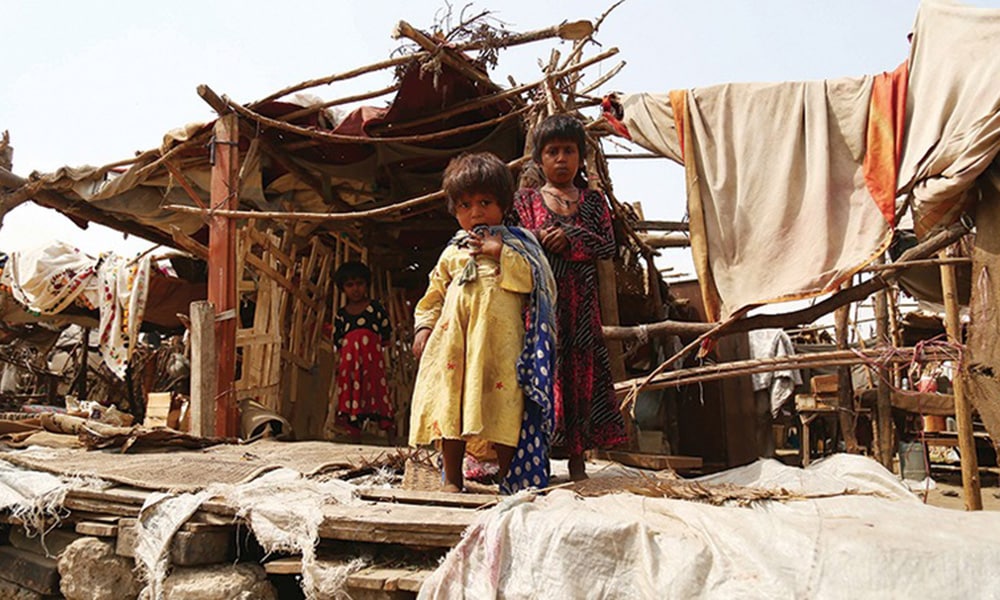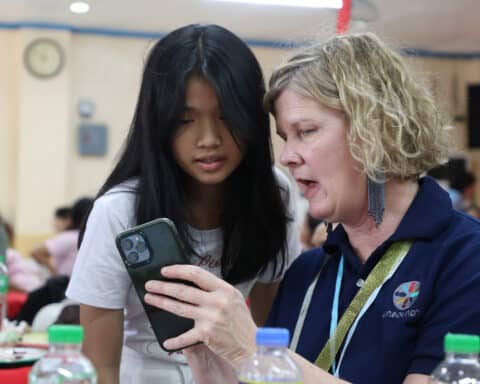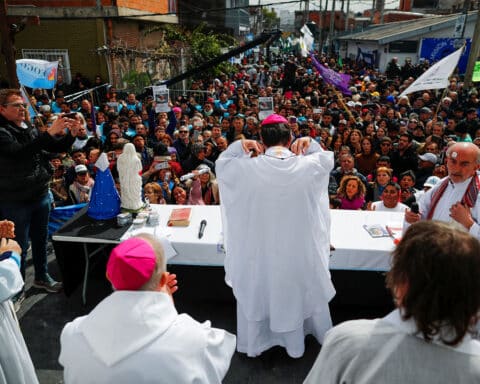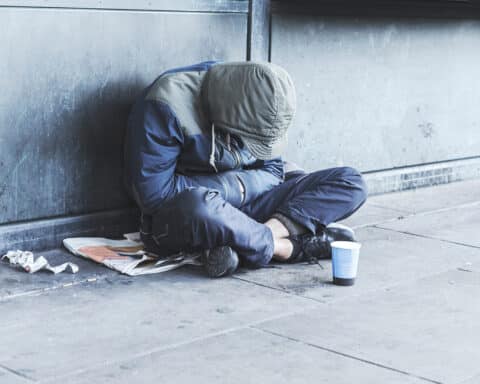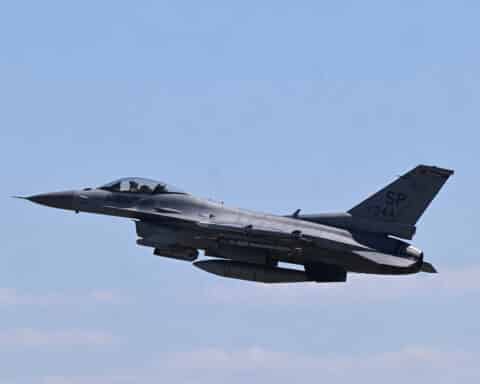
A cry is how Pope Francis describes the experience of poverty, in his message for the Second World Day of the Poor, which the Church observes Nov. 18. Pope Francis instituted World Day of the Poor in 2016, as part of the conclusion of the Church’s Jubilee Year of Mercy. “Poverty cannot be summed up in a word; it becomes a cry that rises to heaven and reaches God,” the pope writes. He continues, “What does the cry of the poor express, if not their suffering and their solitude, their disappointment and their hope?”
Citing Psalm 34, Pope Francis reminds us that God hears and answers the cry of the poor. “God’s answer to the poor is always a saving act that heals wounds of body and soul, restores justice and helps to live life anew in dignity,” he writes. But this is not a dynamic that plays out merely between God and the poor, he adds: “God’s answer is also a summons to those who believe in him to do likewise, within the limits of what is humanly possible.”
This summons is not just an invitation, a warm-hearted gesture. It is the greatest commandment of God to love him and our neighbors. Our response, as Matthew 25 makes clear, is the singular measure of the worth of our labor on earth. For those who desire metrics and certainty, Christ noted this as the criterion by which the people version of “goats” vs. “sheep” will be sorted. It is the foundation for the preferential option of the poor stipulated in Catholic social teachings. There is not much wiggle room here.
Many of us are aware of our blessings and thank God often for these in our prayer. To the temple, the Israelites brought their first fruits and unblemished animals as offerings to express the depth of their gratitude. In exile, they placed alms into the hands of the poor as their offering to God. When we give to the poor, we imitate the goodness of God; we follow where God goes. Would our giving be different if we think of the poor as our path to God, their palms as the altar, and our alms as the measure of our gratitude?
Beyond giving, there are other ways to stand in solidarity with the poor. In our society, we are prone to judge, diminish and discard the poor. We deem the marginalized unworthy of our concern and a drain on our resources. In the United States, we hail the market system, while dismissing the limitation of markets for those without the needed resources such as safety, shelter, nutrition, education, knowledge, power and connections to access and excel in the market system.
We demonize migrants, turn our backs on their unspeakable plight, threaten them with our own violence and by force tear their children from their arms. All this justified under the banner of national sovereignty, while ignoring the sovereignty of God, whose creation is meant for all. We act in fear, out of a mentality of scarcity, competitiveness and a zero-sum game that contradicts the generosity and infiniteness of God.
When we let these mindsets dominate our discourse and action, whether we intend to or not, we are not standing with the poor.
Pope Francis, again in his message for World Day of the Poor, teaches: “The Lord listens to those who, trampled in their dignity, still find the strength to look up to him for light and comfort. He listens to those persecuted in the name of a false justice, oppressed by policies unworthy of the name, and terrified by violence, yet know that God is their Savior.”
And here we can draw lessons about what it means to be “poor in spirit,” the pope notes. The grace-filled opportunity of encountering the poor with the merciful gaze of the Gospel takes us more deeply into our identity as followers of Jesus Christ.
In them, we find him, learn to rely on him and grow closer to him. This opportunity awaits.
Carolyn Woo served as president and CEO of Catholic Relief Services from 2011-16. The former dean of the University of Notre Dame’s Mendoza College of Business, she is now the Distinguished President’s Fellow for Global Development at Purdue University.

